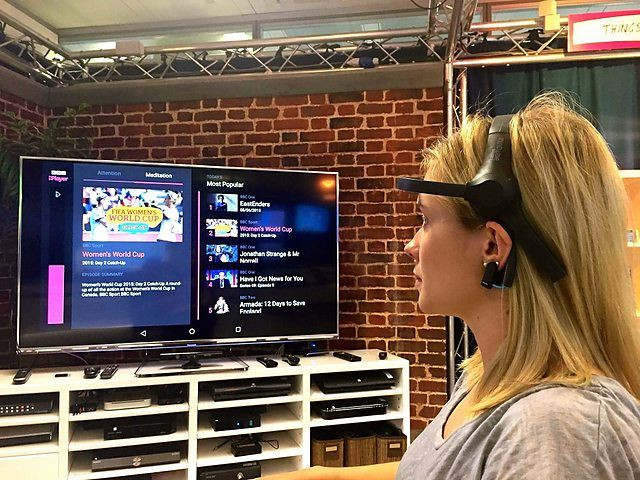The Force May Soon Be With You: BBC Is Testing Out Mind-Controlled iPlayer

The Force may soon be with you (albeit, in a limited capacity). In a blog post published on Thursday, BBC revealed that it is testing out a mind controlled version of its iPlayer.
In collaboration with the user experience studio This Place, the UK broadcaster created a "Mind Control TV" prototype using a simple brainwave reading headset. Controlled only by users' brainwaves, the internal prototype allows users to open the iPlayer, its video on demand service, and select a TV show to view.
The obvious question is, does it work? According to Cyrus Saihan, BBC's head of business development, 10 BBC staffers tested the technology out in the first trial run and were able to launch the app and start watching a show. "It was much easier for some than it was for others, but they all managed to get it to work," Saihan wrote in the blog post. There's a video on the BBC's site that shows the prototype in action and explains how it works.
The BBC is interested in observing what effect this technology has on audience experience.
"An important potential benefit that brainwave technology might offer is the ability to improve the accessibility of media content to people with disabilities," Saihan wrote. " For example, people affected by motor-neurone disease or suffering locked-in-syndrome may increasingly be able to use brain-computer interfaces to get a better experience of digital and media services than they currently do, potentially opening up the online world of information and experiences that the rest of us now take for granted."
It's important to note that remotes and keyboards aren't going anywhere anytime soon because the technology is still in its early stages. As Saihan notes, the capabilities of brainwave technology are fairly basic, and the BBC's experimental app only accepted binary instructions like "on/off." For example, users are presented with a list of shows to watch, and the app then slowly highlights each one. To open and play a show, the user has to concentrate on it when it is highlighted.
"Our proof-of-concept is only an experiment and just a toe in the water, but it helps our initial understanding of how we might be able to control devices using our brainwaves in the years to come," Saihan wrote.
© Copyright IBTimes 2024. All rights reserved.






















